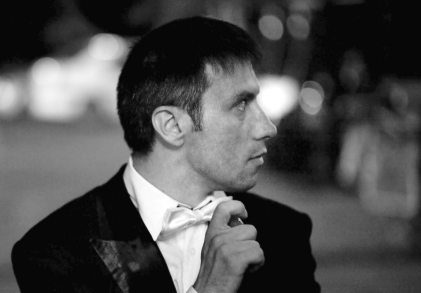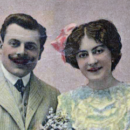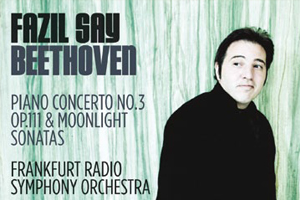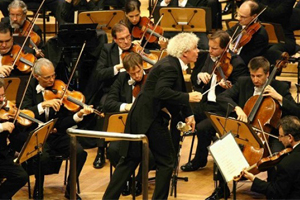
TIBERIU SOARE – “CLASSICAL MUSIC IS ABOUT WHAT YOU FEEL. IT IS THE SAME WITH ROCK OR JAZZ”
About classical music, rock and what snobbery is good for in an interview with Tiberiu Soare, the most charismatic and charismatic Romanian conductor. He’s the kind of person who believes in change, especially because he actively and enthusiastically pursues a generation change with Choirs and Radio Orchestras, whose principal conductor he is since summer.
You are a great rock listener. What is the connection between rock and classical music?
First, it is a certain type of energy. We are used to associate classical music with some kind pomposity because of the cultural climate in which we grew, but things were not always like this and I don’t think that they should stay this way. Going to a classical music concert was associated with a certain symbolism, became an event, and it’s normal because it has been a tradition for many centuries. But at the same time, we must not forget that a concert is an occasion of joy or unchanging energy. That is why we go to concerts, and this is why we, musicians, play music. I recently saw Through The Never , a kind of extended video of Metallica, and realized that there are many similarities about what you feel, rather than what actually happens in a classical concert. There are moments where you just need to unleash a certain type of energy. This is, somehow, what classical music and rock have in common. If it gives that impression it means that something is wrong. If we say that classical music appeals to the elite, it is clear that we are talking about connoisseurs because otherwise we are talking about snobs, people who listen to classical music without understanding it because they know it’s good to say that you listen to such music. On the other hand, snobs have their role: a snob is somebody who made at least a step in the right direction. You start to listen to something out of snobbery and then you realize that you like it, or it could be a step forward and in time that person gets to know some things. Another thing that pushes you to this kind of music is curiosity. For example, you have a friend you admire and you see that he has the intellectual satisfaction and you say: let’s see what’s there. It is the way I got into jazz . It seemed a waste of time and I made efforts not to get bored when listening. I was at University at the time, about 20 years ago. These people around me , friends with whom i was discussing books and listening to music found something in this music. I snapped, not during a live concert, but when I was persuaded to listen to Miles Davis ‘s Kind of Blue. I then started to understand jazz, perhaps in a wholly personal way.
When it comes to conductors, we often use phrases like “baton magician” or ”wizard baton” . Is it a myth?
Firstly, the conductor must be a very good craftsman. This magic exists, indeed, and at some point it becomes inexplicable. But you have to work hard to get there, all those so-called magical effects which a conductor achieves with an orchestra are obtained through a lot of effort.
Do you think there is something particular about the attitude of hipsters towards music? I got the impression that they are trying a retrieval, often sophisticated, of music of the olden times.
I don’t really know about the hipster movement, but I think these guys see themselves as sophisticated . There were always people (from Alcibiades to Barbey d’ Aurevilly ) who put the natural above artifice, which is good. It’s an aesthetic movement which resembles the dandy movement. There are people who want to enjoy the beautiful, pleasant things, which are not necessarily out of the reach of the masses, people who have spent all their energy to create a masterpiece out of their mere existence. Music has become a kind of label: it matters what you listen to or what you say you listen to, like it matters what you read or what you say you read.
We must do everything together, I cannot impose the sound to the orchestra . All the social and cultural context does no longer offer the conductor the authority he had back then. And it suits me better this way.
Enescu’s Second Symphony just came out on the market. Why did you choose the second?
We want to do a full collection of Enescu’s completed symphonic works: three symphonies and three suites for orchestra. Enescu’s music puts me to work and it keeps me at my maximum level. I realized that the hardest work and the one that puts the most problems, not only of expression, but of technique, is precisely Second Symphony . I’ve always had this philosophy, instilled in military school: if you’re afraid of something , you turn your face towards it and go straight to it.









